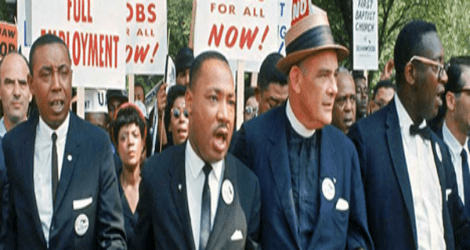Scripture
Readers will certainly have noticed my persistent appeal to scripture throughout this discussion. It is one of Reformed theology’s great distinctives that it takes scriptural teaching with the utmost seriousness. Auguste Lecerf, a French Reformed thinker in the early 20th century, described the relation between Reformed Christianity and scripture as follows: “With head bowed in the dust, [the Reformed church] would listen to the Word of God. It speaks when it believes that God has spoken, but remains silent in the presence of the silence of [God’s] Word. Here are its credentials. It has no others.”[7] This primacy of scripture stands out in the importance of confessions among Reformed Christians. Unlike some other Christian traditions that give the theology embodied in their confessions a binding and almost legal quality, Reformed Christianity has always understood its confessions as provisional and contextually determined statements. Aside from recognizing the vicissitudes of life that necessarily impinge upon any particular confession, the Reformed tradition has given its confessions only relative authority “because [the confessions] are subordinate to the higher authority of Scripture,” as the “Confessional Nature of the Church Report,” which heads the PCUSA’s Book of Confessions, explains.[8]
A further distinction comes from the tradition’s impulse to approach all of scripture as normative, including—critically—the Old Testament. While Christianity as a whole rejects the heresy of Marcionism, which argues that the God of the Old Testament is not “the God and Father of our Lord Jesus Christ” (Eph 1:3) and consequently that the Old Testament is not properly Christian scripture, the Reformed tradition stands out historically as taking that rejection to heart. It is easy to find sermons preached on Old Testament texts by Reformed ministers, and fifteen of the twenty-two volumes of Calvin’s biblical commentaries deal with Old Testament books. Indeed, the above discussion of the place that the covenant—a term far more common in the Old Testament than the New—has in Reformed theology demonstrates this point as well.
One strand of the Old Testament’s message is especially pertinent to the present discussion. I refer to what scholars call the Prophetic Tradition, a recurring voice throughout the Old Testament that called Israel back to faithful covenant relationship with God. This tradition is worth explicating here. Listen to Amos 5.21-23:
I hate, I despise your festivals,
and I take no delight in your solemn assemblies.
Even though you offer me your burnt offerings and grain offerings,
I will not accept them;
and the offerings of well-being of your fatted animals
I will not look upon.
Take away from me the noise of your songs;
I will not listen to the melody of your harps.
We have here a litany of how ancient Israel put into practice their love of God, which revolved around sacrifices offered at the temple in Jerusalem. God prescribed all this as the proper way to put their love of God into practice. Why does God now hate these things? The answer is in verses 11-12:
because you trample on the poor
and you take from them levies of grain,
you have built houses of hewn stone,
but you shall not live in them;
you have planted pleasant vineyards,
but you shall not drink their wine.
For I know how many are your transgressions,
and how great are your sins –
you who afflict the righteous, who take a bribe,
and push aside the needy in the gate.
God’s message of judgment comes to Israel through Amos because Israel has forgotten, as the prophet Micah puts it, “to do justice, and to love kindness, and to walk humbly with your God” (Mi 6.8). From an ethical perspective, Israel has forgotten that the second table of the law flows ineluctably from the first, that the love of neighbor is itself a part of the love of God. What does God recommend through his prophet Amos as the proper response to this unacceptable state of affairs? It certainly is not more burnt offerings! Amos provides an answer in verse 15:
Hate evil and love good,
and establish justice in the gate.
God demands that God’s people address the social injustice in their midst, that they oppose it, that they hate it. Furthermore, these are not recommendations for an individual’s pious attitudes and charitable activities. Justice must be established at the gate, where the elders sat in ancient towns and cities to hear disputes and render judgments. God’s message through the Old Testament prophets is that faithful and active covenant relationship with God requires that one support the oppressed and oppose the privileged, not only in one’s personal life, but also and critically at the very heart of the structures and institutions that govern society.
Neither is this powerful prophetic witness absent from the New Testament. It seems to have played a key role in Jesus Christ’s own thought. Two examples will suffice to make this point.
___________________________________________
Jesus intimates that it is impossible to love one’s neighbor rightly while also accumulating significant wealth.
___________________________________________
First, Jesus encounters a rich, young ruler who inquires as to what it takes to enter God’s kingdom. Jesus replies by reciting the Law, the Ten Commandments. The ruler replies, “I have kept all these since my youth,” only to hear from Jesus that “there is still one thing lacking. Sell all that you own and distribute the money to the poor . . . then come, follow me.” Luke tells us that when the ruler heard this, “he became sad; for he was very rich” (cf. Lk 18.18-23). This incident contains immense implications for understanding the Law. Jesus makes two important points by bringing the ruler’s riches to the fore and by requiring that he give those riches away to the poor in response to the ruler’s conviction that he had observed all that the Law requires. On the one hand, Jesus intimates here that it is impossible to rightly love God through observing the Law without also loving the neighbor through giving of one’s resources. But there is another and even more radical hand. Jesus intimates that it is impossible to love one’s neighbor rightly while also accumulating significant wealth.[9]
Second, Jesus appeals to the prophetic tradition as a cornerstone of his self-understanding, of the way in which he understood his God-given vocation. Luke records an incident that occurred at the beginning of Jesus’ public ministry, following shortly after Luke’s description of Jesus’ birth, baptism, and period of temptation in the wilderness. Jesus returned from the wilderness to his home region of Galilee and began to teach in the synagogues there. When he arrived at his hometown of Nazareth and entered the synagogue, he read from a scroll containing Isaiah’s prophetic teaching:
The Spirit of the Lord is upon me,
because the Lord has anointed me
to bring good news to the poor.
The Lord has sent me to proclaim release to the captives
and recovery of sight to the blind,
to let the oppressed go free,
to proclaim the year of the Lord’s favor.
Jesus then rolled up the scroll and sat down and said, with what I can only imagine was a studied calmness, “Today this scripture has been fulfilled in your hearing” (cf. Lk 4.14-21). Thus did Jesus identify himself with the prophetic tradition’s concern for social justice, for taking the side of the poor and oppressed and standing with them against the privileged, for calling God’s people—and, indeed, the whole world—to faithful and active covenant relationship with God.
Continue reading on the next page…






Unbound Social